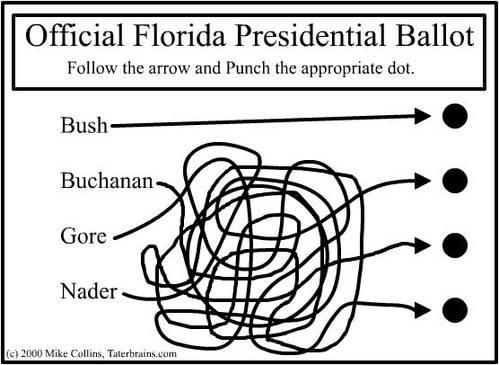Contrary to even the safest predictions, there was no winner on the night of the Iowa Caucus. Oh, there was a winner. The next day. In fact, Iowa was so generous it gave us two potential winners: Bernie Sanders in the popular vote and Pete Buttigieg in the delegate count. Or maybe Bernie in both. We’ll see. But the entire Iowa Caucus fiasco blunted its impact.
Let’s take a look at how the Iowa Caucus will impact the next steps.
1. Bernie Sanders will probably win the New Hampshire primary.
Despite any quibbles, Bernie Sanders is clearly the candidate I want to win. And so, there’s always the possibility of bias. But Sanders consistently leads the polls in New Hampshire. It’s possible Buttigieg’s ‘win’ (see more below) in Iowa will put him over the top, but it’s unlikely.
Sanders won the popular vote in Iowa, though he might not have won the delegate count. And so, he didn’t quite win, but he didn’t lose, either. He won’t head into New Hampshire with either positive or negative momentum. He’ll also likely benefit from Biden’s collapse (see more below). Put together, that’s probably enough to leave him on top.
2. Pete Buttigieg probably still can’t win the nomination.
To be clear, Buttigieg beat expectations in Iowa. He was polling around third or fourth, and he finished second in the popular vote. But the Buttigieg campaign has been fading nationally. He really needed a clear win in Iowa to put him back in the race, and he didn’t quite get that.
Buttigieg declared victory on Monday night, which didn’t turn out quite right. The declaration was a gamble. And in the context of electoral politics, the gamble made sense. As I’ve argued, Buttigieg had to win Iowa to stay competitive. He had little to lose by declaring victory, and so he did it. It was exactly what he needed to do to maximize his chances of winning the nomination. And he came close enough to a win in Iowa to make it stick.
But even with this bounce, he’s still well behind in the race. He consistently polls behind Biden, Sanders, Warren, and often even Bloomberg. His performance in Iowa saves his campaign for now, but he’s got a long way to go before it’s a winning campaign.
3. Elizabeth Warren will probably continue fading.
Warren’s heading in the wrong direction at the wrong time. While she does well in terms of favorability among Democrats – and in a two-way race against anyone – she’s not very many people’s first choice. Why? I think the biggest reason is that she’s too moderate for Sanders supporters and too progressive for Biden, Bloomberg, and Buttigieg supporters.
To get back in the game, she probably has to win or finish a close second in one of the first two states. She didn’t get it in Iowa, and polling doesn’t look good for her to get it in New Hampshire, either. Without that kind of result, she’s going to finish the month of February with no wins.
What happens from there? Most likely she has difficulty competing in the Super Tuesday states and raising money. She’s already canceling ads, and would continue to do so. That’s not the mark of a winning campaign. If the race winnows down to just a couple of candidates, Warren is unlikely to be one of those candidates. And if that scenario happens, she should drop out and endorse someone else. Hopefully Bernie Sanders.
With a third or worse finish in New Hampshire, the only plausible route for a Warren victory is major gridlock with no clear leaders. And there’s not all that much reason to think Warren would be the person who benefits from gridlock.
4. Joe Biden faceplanted, and he can’t afford to do it again in New Hampshire.
The bar was pretty low for Joe Biden. Before Bernie Sanders began his climb in the polls, Biden really just needed to not get blown out in Iowa. That would’ve been enough, given his competitiveness in New Hampshire and strong lead over Elizabeth Warren in Nevada, South Carolina, and the Super Tuesday states. As a result, Biden had the easiest path.
Alas, it didn’t go that way for Joe. He polled well in Iowa, and then he got blown out. If this happens again in New Hampshire, he’s in big trouble.
Why? There’s a fair bit of centrist or moderate vote in the Democratic primaries. But the weaker Biden looks, the smaller his slice of that pie will be. Bloomberg, Buttigieg, and Klobuchar all take at least some of the vote he’s counting on. And Bernie Sanders is cutting into his support among black voters, his alleged firewall. Joe’s in trouble if he finishes fourth next week.
5. The Iowa Caucus took a huge hit.
Immediate reaction to the Iowa Caucus was widespread condemnation of…the Iowa Caucus. I suspect that’ll simmer down a bit as we move along. It’s not going to be in the news forever. But the general perception of glitches and incompetence – regardless of the accuracy of that perception – will do some damage.
If it were just that, maybe there’s no momentum to kill the Iowa Caucus. But when you combine that with its other problems – the lack of diversity in the state of Iowa, the over-representation of older voters, et al. – it creates a situation where the Democratic Party might change things.
